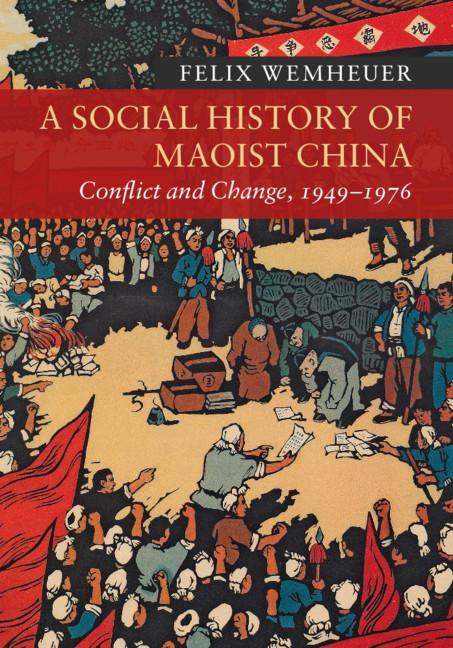New Approaches to Asian History

New Approaches to Asian History
When the Chinese communists came to power in 1949, they promised to 'turn society upside down'. Efforts to build a communist society created hopes and dreams, coupled with fear and disillusionment. The Chinese people made great efforts towards modernization and social change in this period of transition, but they also experienced traumatic setbacks. Covering the period 1949 to 1976 and then tracing the legacy of the Mao era through the 1980s, Felix Wemheuer focuses on questions of class, gender, ethnicity, and the urban-rural divide in this new social history of Maoist China. He analyzes the experiences of a range of social groups under Communist rule - workers, peasants, local cadres, intellectuals, 'ethnic minorities', the old elites, men and women. To understand this tumultuous period, he argues, we must recognize the many complex challenges facing the People's Republic. But we must not lose sight of the human suffering and political terror that, for many now ageing quietly across China, remain the period's abiding memory.
PRP: 217.00 Lei
Acesta este Prețul Recomandat de Producător. Prețul de vânzare al produsului este afișat mai jos.
195.30Lei
195.30Lei
217.00 LeiLivrare in 2-4 saptamani
Descrierea produsului
When the Chinese communists came to power in 1949, they promised to 'turn society upside down'. Efforts to build a communist society created hopes and dreams, coupled with fear and disillusionment. The Chinese people made great efforts towards modernization and social change in this period of transition, but they also experienced traumatic setbacks. Covering the period 1949 to 1976 and then tracing the legacy of the Mao era through the 1980s, Felix Wemheuer focuses on questions of class, gender, ethnicity, and the urban-rural divide in this new social history of Maoist China. He analyzes the experiences of a range of social groups under Communist rule - workers, peasants, local cadres, intellectuals, 'ethnic minorities', the old elites, men and women. To understand this tumultuous period, he argues, we must recognize the many complex challenges facing the People's Republic. But we must not lose sight of the human suffering and political terror that, for many now ageing quietly across China, remain the period's abiding memory.
Detaliile produsului











